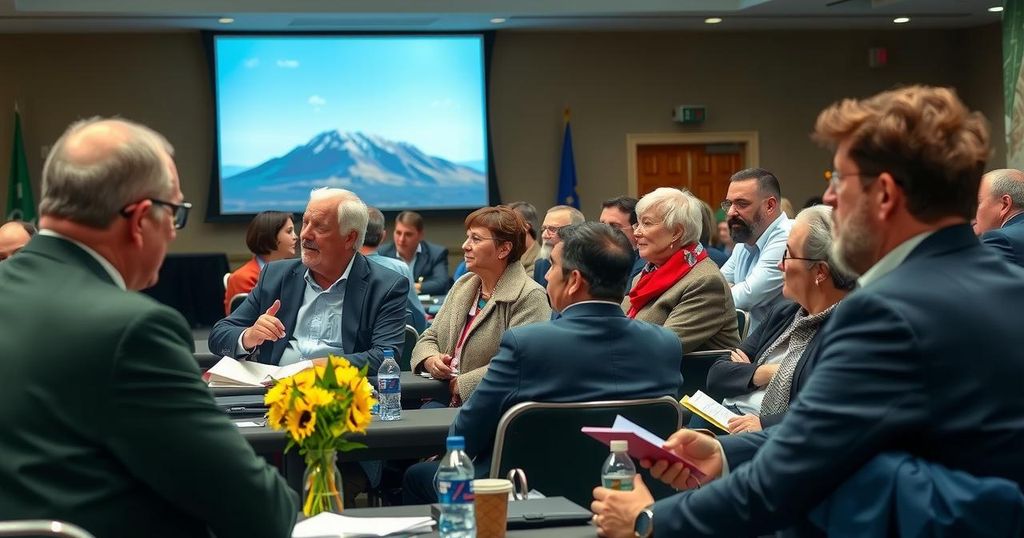The article explains how U.S. foreign policy has drifted from the Founders’ principle of avoiding entangling alliances, showcasing the historical context of international treaties, particularly climate agreements. Despite initial voluntary commitments, these agreements have evolved into binding obligations that significantly impact the American populace without Congressional approval, raising legal and democratic concerns.
The principle of avoiding entangling alliances, as articulated in George Washington’s “Farewell Address,” provided the foundation for U.S. foreign policy. Washington asserted that the United States should prioritize its commercial relations while minimizing political connections with foreign nations. This sentiment was echoed by President Thomas Jefferson, who emphasized the American commitment to “peace, commerce, and honest friendship with all nations, entangling alliances with none.” Today, the landscape has significantly changed, with the United States bound to myriad international agreements, treaties, and organizations, some of which impose regulations on its citizens that would not receive Congressional approval. The Founding Fathers recognized the hazards of foreign commitments and established rigorous criteria for treaty ratification, requiring a two-thirds majority in the Senate. However, the lack of a clear definition regarding what constitutes a treaty has rendered this requirement less effective over time. Since the administration of John Adams, Presidents have historically entered into and rescinded arrangements with foreign entities. Particularly post-World War II, much of U.S. foreign policy has rested upon international agreements that frequently bypass Senate ratification. Notably, the 1992 United Nations Framework Convention on Climate Change, ratified by the Senate, initiated a commitment among nations to collaboratively address greenhouse gas emissions, albeit initially on a voluntary basis. Yet, subsequent conferences have led to increasingly burdensome emission reduction targets and financial obligations, none of which have successfully navigated Senate approval or garnered majority public support. For example, the 1997 Kyoto Protocol sought a seven percent reduction in emissions by 2012; however, it faced staunch opposition in the Senate, resulting in President Clinton’s decision not to submit the agreement for ratification. Subsequent climate accords, including those established in Bonn, Doha, Paris, and Glasgow, have similarly posed significant commitments on the United States, labeled as “binding agreements” that demand substantial reductions in emissions and financial support for other nations. Critically, such agreement modifications raise legal questions regarding their capacity to supplant federal law without Senate consent. Congress acknowledges both treaties and executive agreements, yet the latter remain ill-defined, which poses further challenges concerning their legitimacy. Legal precedents suggest that agreements resulting in substantial national implications, influencing state laws, thereby necessitating legislative implementation, or inducing major policy upheavals should likely require Senate ratification. The climate agreements discussed fulfill these criteria, indicating profound implications for American society, economy, and governance, executed without the electorate’s consent through their chosen representatives. In consequence, these international agreements may exemplify what Washington cautioned against: “entangling alliances.”
The article discusses the historical context and contemporary implications of U.S. foreign policy, specifically concerning climate agreements. It highlights the cautionary views of American Founders towards foreign alliances and analyzes how modern treaties and executive agreements have evolved to potentially undermine Congressional authority and the democratic process. By exploring the ratification process, the experience with significant agreements like the Kyoto Protocol and the Paris Agreement, and their binding nature, the article illuminates ongoing debates about national sovereignty versus global commitments.
In summary, the United States has strayed significantly from the foundational principle of avoiding entangling alliances as articulated by its Founders. While modern climate agreements aim to address pressing global issues, they risk imposing significant changes on American society and law without adequate public or legislative support. The lack of clear definitions surrounding treaties and executive agreements adds a layer of complexity, highlighting the need for careful scrutiny and potential reform in how the U.S. navigates its international commitments to preserve democratic processes and maintain accountability.
Original Source: heartland.org






